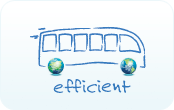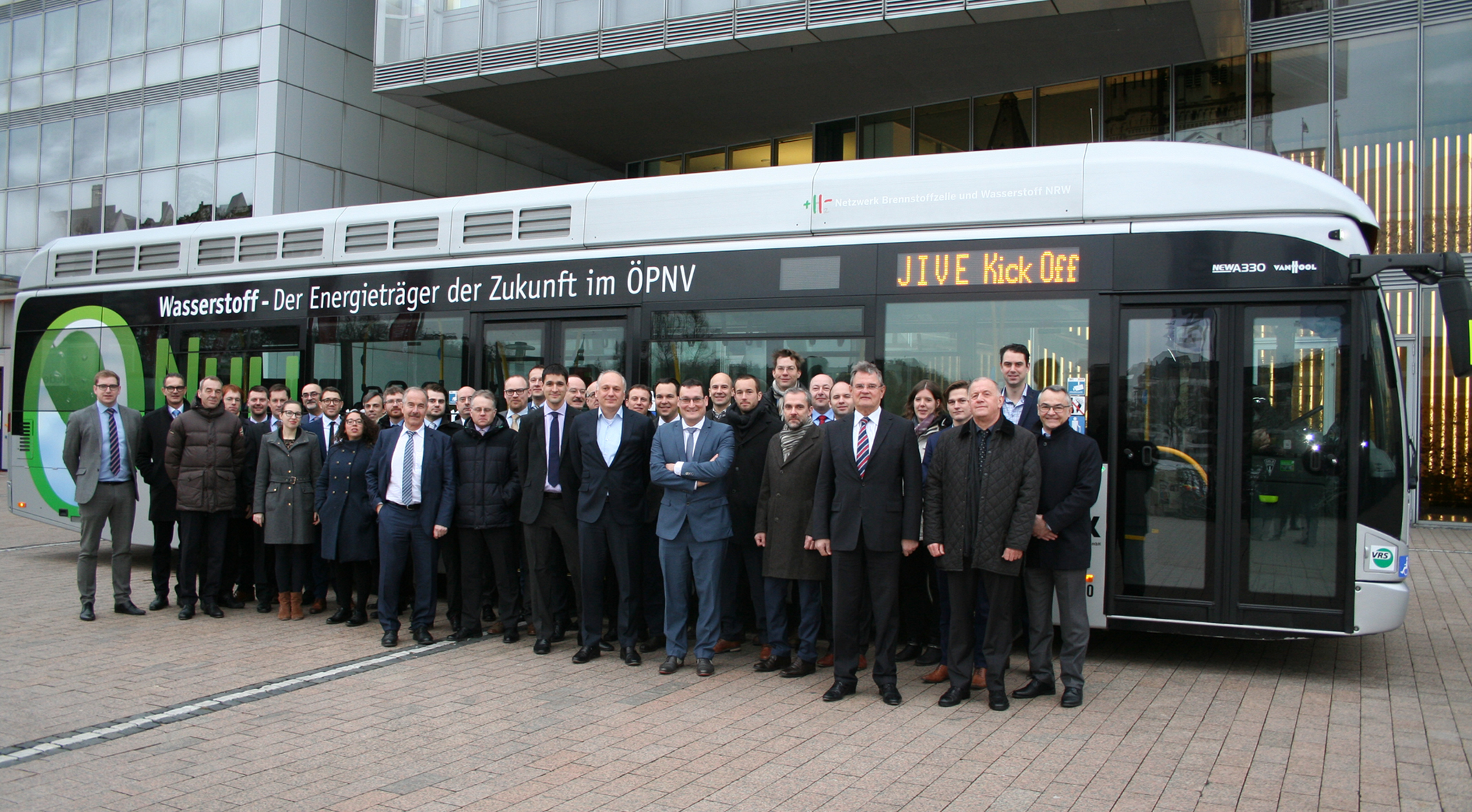 |  |  |  |  |
|





|
Launch of European Collaborative project to deliver zero emission fuel cell buses across Europe
The scale of deployment envisaged here will allow European bus manufacturers to develop their production capabilities and achieve the economies of scale which are needed to allow fuel cell buses to compete with other zero emission modes of public transport. Likewise, the project will show how hydrogen refuelling stations with large daily demands can be commercially viable, providing valuable operational feedback to station operators and equipment manufacturers, whilst demonstrating the reliability and availability required for public transport operations.
The JIVE project, supported by a €32M grant from the Fuel Cells and Hydrogen Joint Undertaking (FCH JU), a public-private partnership aiming at accelerating commercialisation of fuel cells and hydrogen technologies, has been developed and will be coordinated by Element Energy and is based on a partnership of public transport providers who will work together to procure the buses and refuelling stations from European suppliers. Buses will be deployed in five European countries in the following cities and regions: Region Köln, Wuppertal and Rhein-Main in Germany, London, Birmingham, Dundee and Aberdeen in the United Kingdom, South Tyrol in Italy, Riga in Latvia and Slagelse in Denmark.
The MEHRLIN project, supported by a €5.5M grant from the European Commission's Connecting Europe Facility (Transport) programme managed by the Innovation and Networks Executive Agency, aims to demonstrate a new demand-led commercial model for the deployment of hydrogen refuelling stations. The project, coordinated by Element Energy, involves a study of the real-life operation of large-scale hydrogen stations in seven different locations; with stations in Germany (Hürth, Wermelskirchen [Cologne Region] and Wuppertal), Italy (Bruneck/Brunico), the Netherlands (Oude Tongue – South Rotterdam), and the UK (London and Birmingham). All of the stations are situated on Europe’s TEN-T core network corridors. The studies will be focusing on the financing of stations (bankability) and on technical, environmental, economic and regulatory performances of hydrogen refuelling stations.
|


